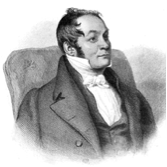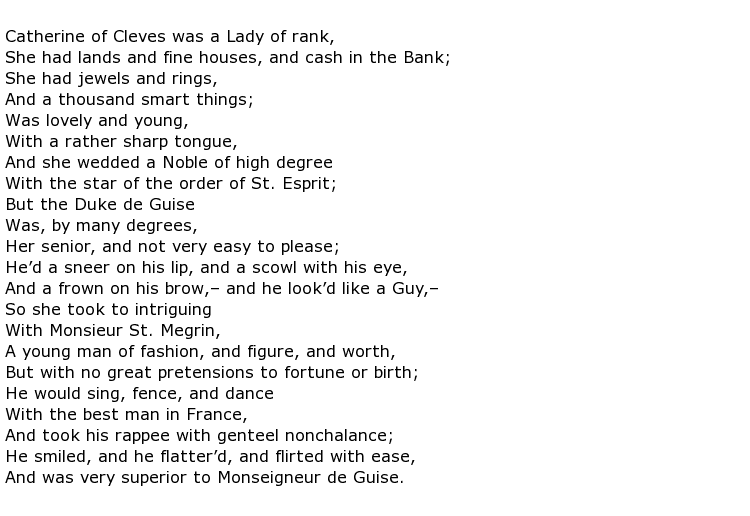 Richard Harris Barham was an English poet and novelist who was also a minister of the Church of England. He wrote under the pseudonym Thomas Ingoldsby.
Richard Harris Barham was an English poet and novelist who was also a minister of the Church of England. He wrote under the pseudonym Thomas Ingoldsby.
He was born on the 6th December 1788 in Canterbury, Kent. He had a difficult childhood, despite being born into comfortable circumstances. When only seven years old his father died, leaving him an estate include a manor house at Tappington Wood which was close by to his birthplace. He was sent to an independent boys’ school in London called St Paul’s School, the age of nine, but he had an unfortunate accident which severely disabled one of his arms. He was thus excluded from all physical pursuits at school so was forced to concentrate on his studies, becoming an avid reader and a more than able student.
He went up to Brasenose College, Oxford in 1807, hoping to study law, but he changed his mind and studied theology, becoming a country curate following his ordination in 1813. His progression as a minister was impressive, being appointed Canon at St Paul’s Cathedral in 1821. After three years he took up an appointment with the King’s Chapel Royal as a “priest in ordinary”.
His career as a writer began, like so many others, with contributions to magazines. His early efforts were seen in Blackwood’s Magazine and then in a newly established publication called Bentley’s Miscellany from 1837. A popular feature in the latter was a series of whimsical prose pieces, sometimes in verse form, which he called The Ingoldsby Legends. The stories, some of which were described as grotesque, were eventually gathered together and published in three separate volumes between the years 1840-47.
Further literary efforts were seen in the Edinburgh Review and the Literary Gazette and a few articles appeared in John Gorton’s Biographical Dictionary. His first novel was called My Cousin Nicholas, published in1834. His work was even set to music with Edward Elgar, the English composer taking Barham’s poem As I laye a-thynkynge and publishing it as a song in 1888. This poem was to be Barham’s last, being completed only days before he died in 1845.
He certainly favoured long poems that told, in great detail, a story of an event or of a character with an interesting tale to tell. One example of this was a poem called The Tragedy and it tells of a lady’s love for Monsieur St Megrin that is thwarted by the murder of this fine young man by agents of the despicable Duke de Guise. Here is the first verse of this long piece:

Barham was described as a good man of dignity and honour, a good friend to many who was intolerant of falsehoods and mean spiritedness. His life was cut short though by something akin to pneumonia which had its beginning one freezing, windy morning in October 1844 when the Queen was visiting the City of London to open the Royal Exchange. Watching the procession from the open windows of a friend’s house he remarked prophetically that

He could not have known that one of those “imprudent gazers” was himself.
That evening he was overcome by violent coughing and his throat was severely inflamed. Gravely ill, it was diagnosed the following day that his condition was beyond recovery. Perhaps it was a reflection of the way that he had led his life, but he prepared for his end calmly and with great fortitude.
The fatal illness that had gripped him was painful but Richard Harris Barham finally died quietly on the morning of the 17th June 1845, at the age of 56.

